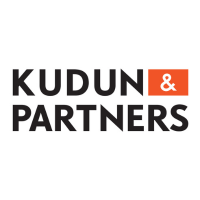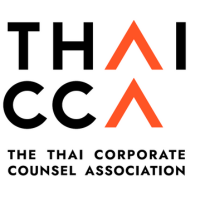

Head of legal | Ninja Van Thailand








Siricha Kiatrabil (Fair)
Head of legal | Ninja Van Thailand
What are the most significant cases or transactions that your legal team has recently been involved in?
I manage the Thai legal department of Southeast Asia’s leading delivery services player, and we made a significant effort to increase revenue and optimise costs, including minimising cost shocks due to operational risks.
I led the negotiation of a multi-million THB group-wide services agreement with Thailand’s leading insurance and financial services group, which was implemented and contributed to strong topline growth. The said group has strong commercial leverage, but our effective communication enabled us to include all necessary risk-mitigating terms to meet Ninja Van’s strict contracting requirements.
With regard to mitigating operational and commercial risks, I led an exercise to map out material operational and commercial risks in our Thai business activities. This was a complicated exercise owing to our huge organisation (upward of 5,000 employees) and required a broad and deep understanding of our operations.
I have procured and implemented a customised and comprehensive insurance policy to cover all such material risks; including all operational risks in the life cycle of parcel delivery (from pick-up, transport, storage and last-mile delivery), all Ninja Van’s assets, third party property damage and personal injury. This comprehensively mitigates cost shocks and guaranteed Ninja Van’s uninterrupted and seamless operations.
I also implemented digital contract templates on our digital contracting platform, whereby our sales team could offer rates (and secure all internal pricing approval) and generate contracts to be digitally signed. This optimised our onboarding process and dramatically improved the legal team’s operational efficiency as contracts could be prepared, approved, and signed in minutes.
As we enter the next decade, what skills will a corporate legal team need to succeed in the modern in-house industry?
Technology permeates all aspects of business operations and activities, and various business functions deploy different technological solutions. To comprehensively understand legal risks, especially in relation to the digital transmission and use of data, all in-house counsels should stay ahead of trending technology solutions and understand their flow of data and how it impacts stakeholders. This understanding allows counsels to better communicate and collaborate with various business functions, ensuring the delivery of comprehensive legal advice and solutions to meet business requirements.
To effectively collaborate with business partners and provide comprehensive advice on risks, counsel should understand financial concepts in order to deliver recommendations that are sensitive to financial impact. Improving financial and tax literacy enables counsel to give more comprehensive advice to business units in their business transactions.
How do you see the general counsel role evolving in Thailand over the next five to ten years?
General counsel have played a crucial role in organisations. Being one requires a diverse range of knowledge; they must act as strategic advisors, actively engaging with all business partners within the organisation.
In the next five to ten years, general counsel will no longer be limited to providing only just legal advice; they must also offer business insights and strategies that encompass both legal aspects and overall business directions. This approach allows general counsel to contribute meaningfully to the organisation’s success and effectively serve as key trusted advisors and partners to the entire executive team.